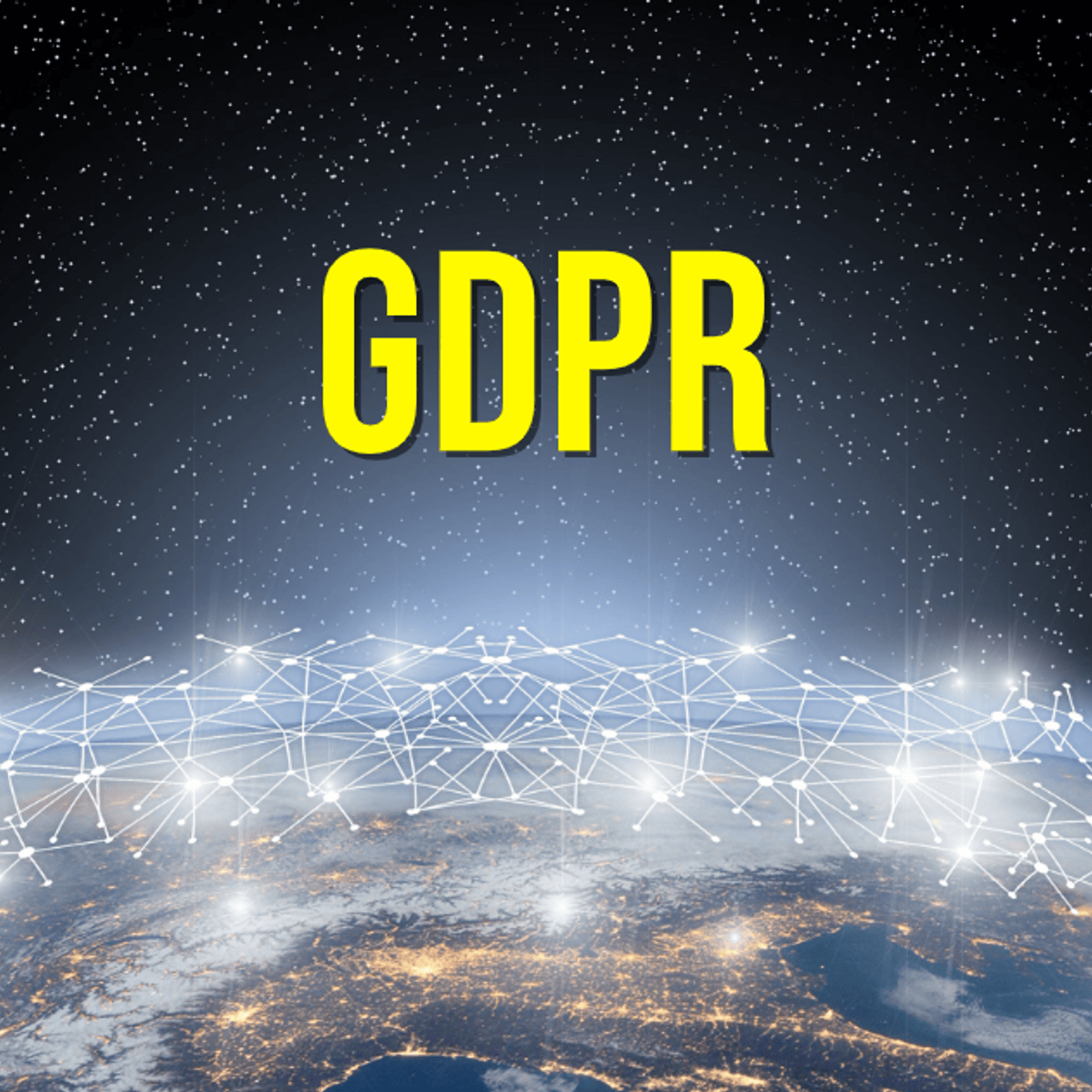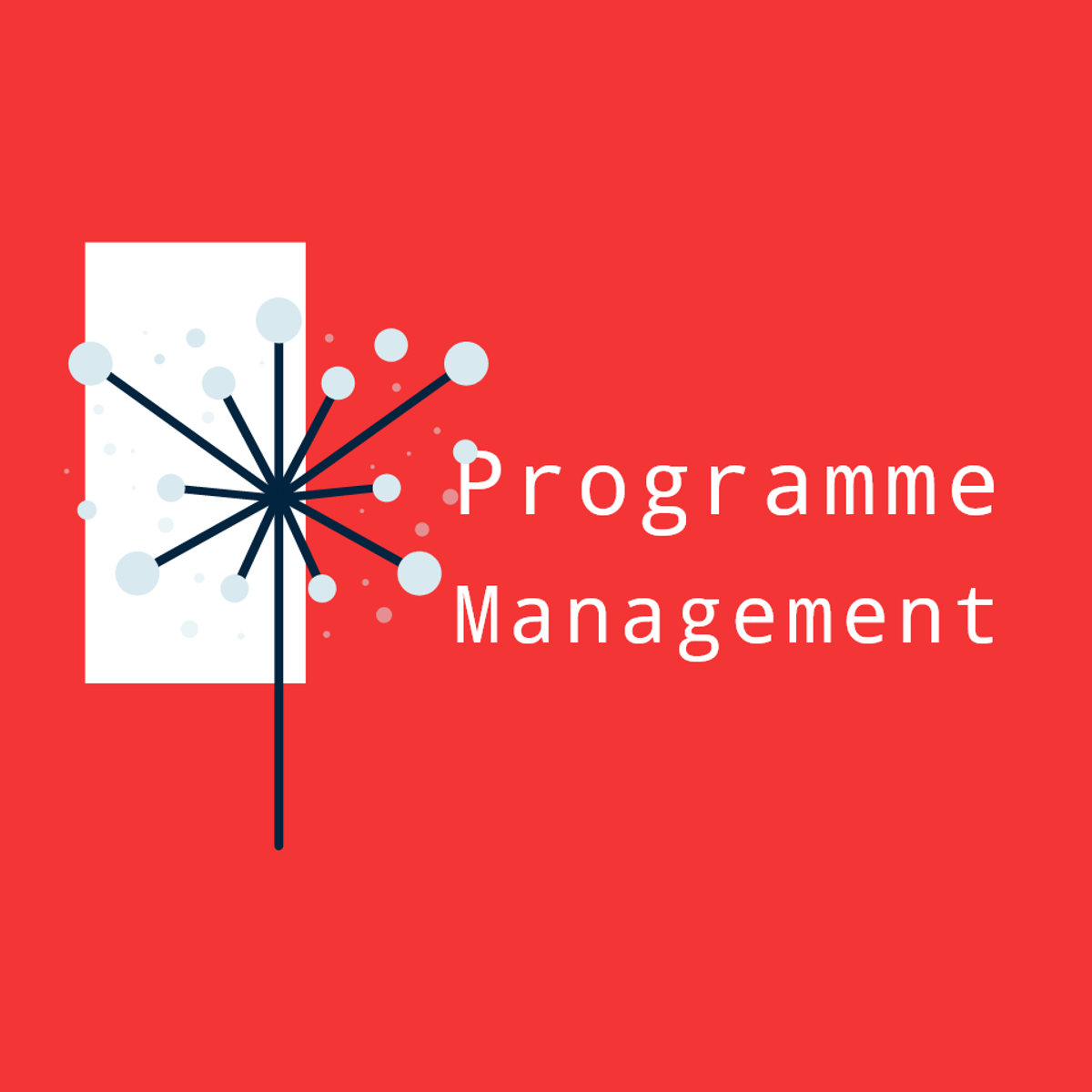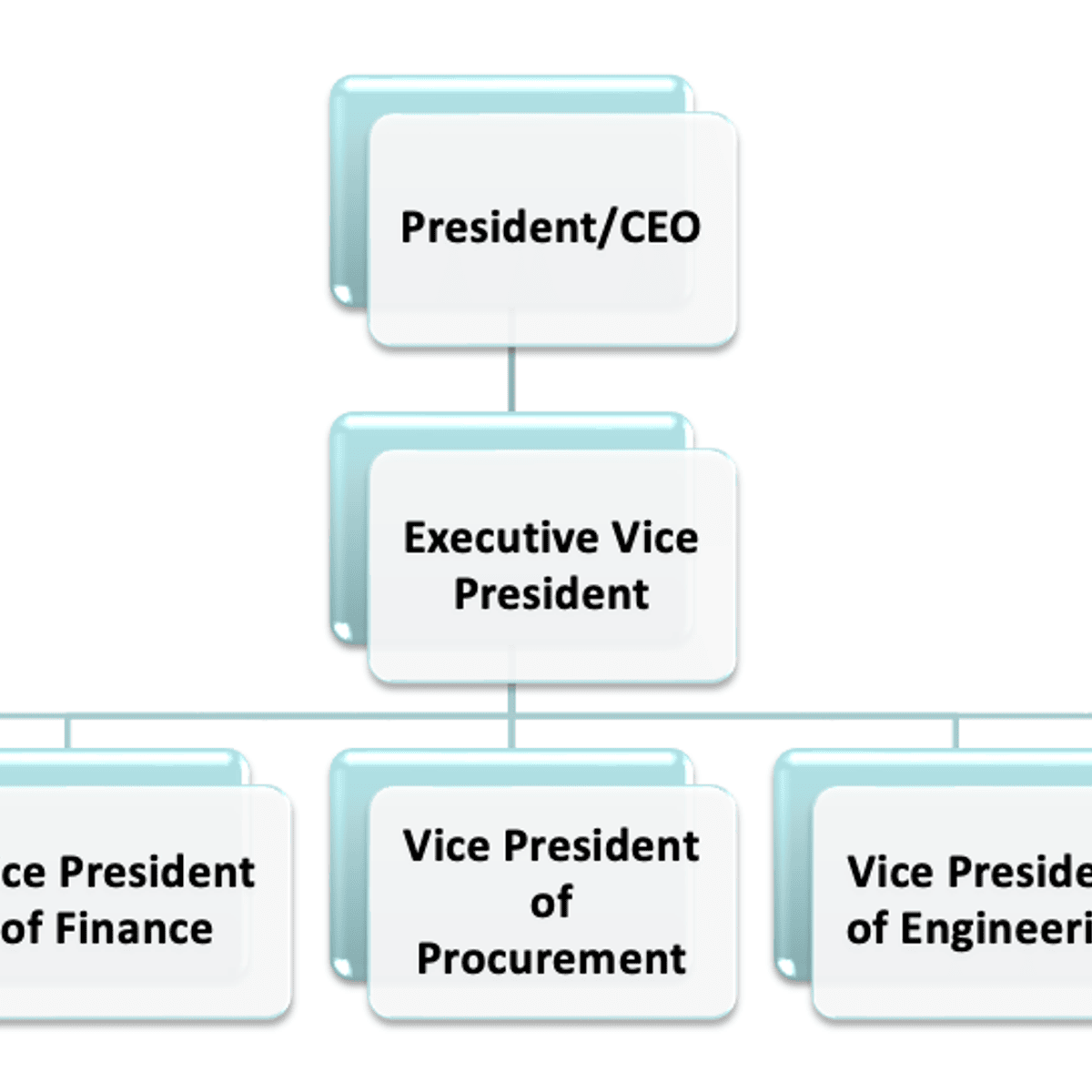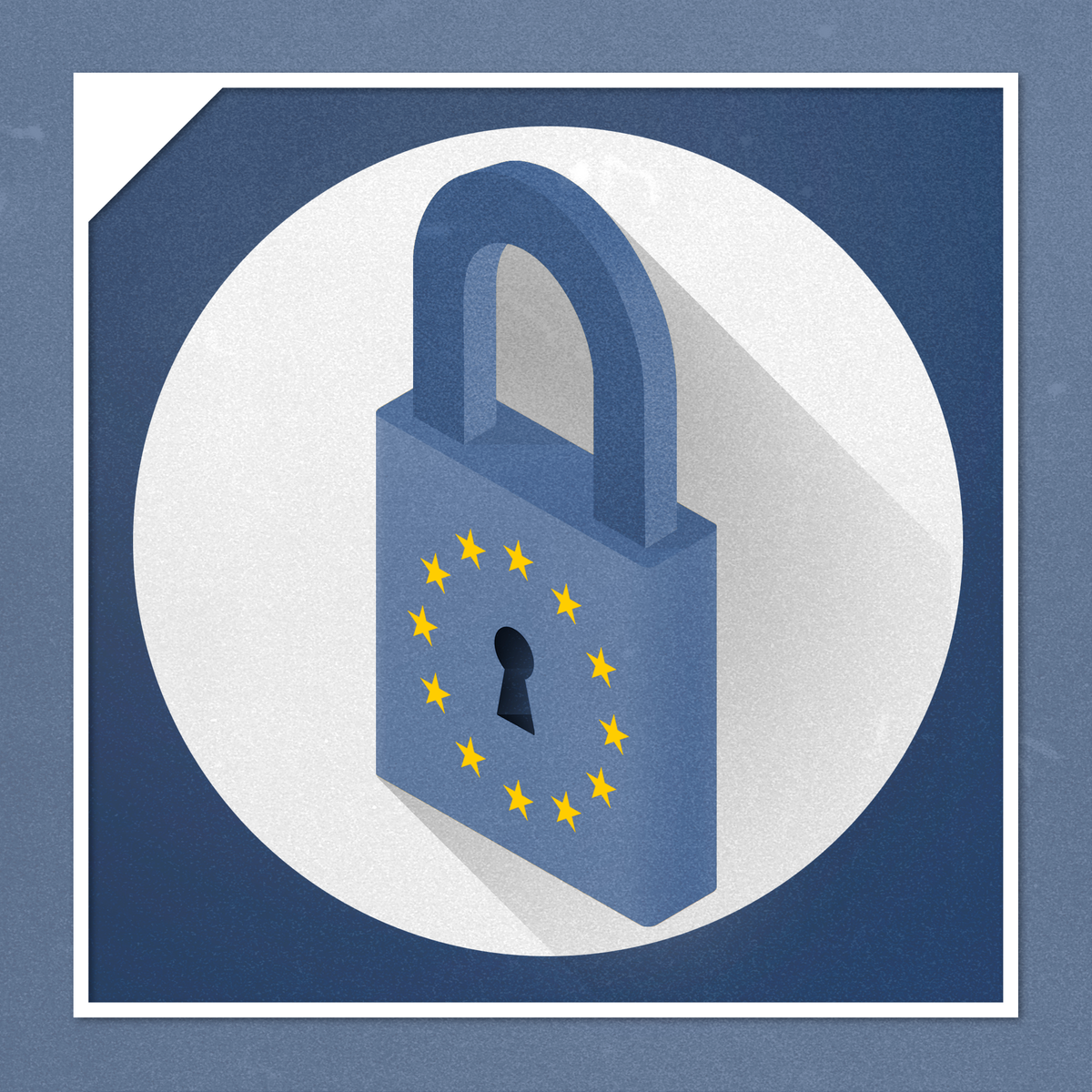Compliance Manager
Navigating the Regulatory Maze: A Career as a Compliance Manager
A Compliance Manager serves as an organization's internal compass, ensuring it navigates the complex world of laws, regulations, and ethical standards. At a high level, their primary role is to protect the organization from legal entanglements and reputational damage by establishing and maintaining robust compliance programs. This involves a deep understanding of applicable rules, proactive risk identification, and the implementation of policies and procedures to ensure adherence.
Working as a Compliance Manager can be a deeply engaging and exciting career. It offers the intellectual challenge of interpreting and applying often intricate regulatory requirements to real-world business operations. Furthermore, Compliance Managers often find themselves at the intersection of various departments, fostering a culture of ethical conduct and integrity throughout the organization. The role is dynamic, constantly evolving with new legislation and industry trends, ensuring that no two days are quite the same.
What Exactly Does a Compliance Manager Do?
The role of a Compliance Manager is multifaceted, involving a blend of strategic planning, meticulous execution, and ongoing monitoring. They are the architects and guardians of an organization's adherence to legal, regulatory, and internal policy obligations. This section delves into the core duties that define this critical function.
Developing and Implementing Compliance Programs
A primary responsibility of a Compliance Manager is the development, implementation, and continuous improvement of comprehensive compliance programs. This involves translating complex legal and regulatory mandates into actionable policies and procedures tailored to the organization's specific context and industry. They work to establish organizational standards, create clear guidelines, and ensure these are effectively communicated and integrated into daily operations.
These programs are not static; they require ongoing refinement in response to new legislation, changes in business operations, or findings from audits and risk assessments. The manager ensures that the compliance framework is robust enough to prevent violations but also practical enough for employees to understand and follow. This often involves collaborating with various departments to embed compliance into their respective workflows.
To gain a foundational understanding of what compliance entails and how programs are structured, several online courses can provide valuable insights. These courses often cover the basic principles of compliance and the initial steps in building an effective program.
Assessing Risks and Devising Mitigation Strategies
Identifying, assessing, and mitigating risks are central to a Compliance Manager's role. They conduct thorough risk assessments to pinpoint areas where the organization might be vulnerable to non-compliance. This involves analyzing business processes, internal controls, and external regulatory landscapes to understand potential threats. Based on these assessments, they develop and implement strategies to mitigate identified risks, which might include revising policies, strengthening controls, or providing targeted training.
This proactive approach helps prevent violations before they occur, safeguarding the organization from potential fines, legal action, and reputational harm. Compliance Managers must be adept at not only identifying current risks but also anticipating future ones, especially in industries with rapidly changing regulations. Effective risk management is a continuous cycle of assessment, action, and review.
Understanding risk management frameworks and compliance strategies is crucial. Several courses focus specifically on these areas, offering learners the tools to effectively assess and manage compliance-related risks.
For those interested in how risk management applies to specific frameworks, the following topic may be of interest.
Overseeing Audits and Reporting
Compliance Managers are responsible for overseeing internal and external audits to verify adherence to compliance programs and regulatory requirements. They coordinate audit activities, respond to auditors' inquiries, and ensure that any identified deficiencies are addressed promptly and effectively. This often involves developing corrective action plans and monitoring their implementation.
Reporting is another key function. Compliance Managers prepare and present regular reports to senior management and, where applicable, regulatory bodies on the status of the compliance program, audit findings, identified risks, and corrective actions taken. Clear and accurate reporting is vital for demonstrating the organization's commitment to compliance and for enabling informed decision-making by leadership. This function ensures transparency and accountability within the organization.
The process of auditing and reporting requires a systematic approach. Online courses can help individuals understand the fundamentals of risk-based auditing and how to manage audit processes effectively.
For a deeper dive into specific audit-related topics, you might explore:
Educating and Training Employees
A critical aspect of a Compliance Manager's role is to cultivate a culture of compliance throughout the organization. This is largely achieved through comprehensive training and education programs for all employees. They develop and deliver training materials that explain relevant laws, regulations, internal policies, and ethical standards in a clear and understandable manner.
The goal of these training initiatives is to ensure that every employee understands their compliance obligations and knows how to report potential issues. Regular training, coupled with ongoing communication and awareness campaigns, helps to embed compliance into the organization's DNA, making it a shared responsibility rather than the sole concern of the compliance department. This proactive education helps prevent inadvertent violations and promotes ethical behavior.
Effective training programs are key to ensuring organization-wide compliance. Courses focusing on security awareness and creating ethical organizational cultures can be particularly beneficial.
The Makings of a Successful Compliance Manager: Essential Skills
Succeeding as a Compliance Manager requires a unique blend of analytical prowess, in-depth knowledge, strong interpersonal abilities, and unwavering ethical principles. These competencies enable them to navigate complex regulatory environments, communicate effectively with diverse stakeholders, and uphold the highest standards of integrity within their organizations.
Sharp Analytical and Critical Thinking
Compliance Managers must possess strong analytical and critical thinking skills. They need to dissect complex regulations, identify potential risks within intricate business processes, and evaluate the effectiveness of control measures. This involves not just understanding the letter of the law, but also its spirit and practical implications for the organization.
When faced with a potential compliance issue or a new regulatory requirement, they must analyze the situation from multiple angles, consider various interpretations, and develop well-reasoned solutions. This ability to think critically allows them to anticipate problems, solve them effectively, and make sound judgments under pressure. It's about seeing beyond the surface and understanding the underlying compliance dynamics.
Courses that focus on developing critical thinking and problem-solving skills can provide a strong foundation for aspiring Compliance Managers.
Deep Knowledge of Legal and Regulatory Landscapes
A thorough understanding of relevant legal and regulatory standards is paramount for a Compliance Manager. This includes familiarity with broad frameworks like GDPR for data privacy, HIPAA for healthcare, or SOX for financial reporting, as well as industry-specific regulations. The regulatory landscape is constantly changing, so a commitment to continuous learning is essential to stay current.
This knowledge allows them to accurately interpret requirements, develop appropriate policies, and advise the organization on compliance matters. Without a solid grasp of the rules, it's impossible to guide an organization effectively. This expertise forms the bedrock of their ability to protect the organization from legal and financial repercussions.
Several introductory courses offer overviews of key regulatory frameworks and legal principles relevant to compliance.
To explore specific regulatory topics in more detail, consider these resources:
Effective Communication and Stakeholder Engagement
Compliance Managers must be excellent communicators, capable of conveying complex information clearly and persuasively to a variety of audiences, from frontline employees to senior executives and external regulators. They need to explain intricate legal requirements in understandable terms and articulate the importance of compliance initiatives. Strong written and verbal communication skills are crucial for drafting policies, delivering training, and presenting reports.
Stakeholder management is also a key competency. Compliance Managers interact with individuals across all levels of the organization and often with external parties like auditors and regulatory agencies. Building strong relationships, fostering collaboration, and effectively managing differing perspectives are essential for gaining buy-in for compliance programs and resolving issues constructively.
Developing strong communication and leadership skills is vital. The following courses can help build these essential competencies.
Meticulous Attention to Detail and Sound Ethical Judgment
Attention to detail is a non-negotiable trait for Compliance Managers. The nature of compliance work involves scrutinizing documents, analyzing data, and ensuring that all regulatory requirements are met with precision. Small oversights can lead to significant penalties or reputational damage, so a meticulous approach is critical to ensure thoroughness and accuracy in all tasks.
Beyond technical skills, unwavering ethical judgment is the cornerstone of a Compliance Manager's credibility and effectiveness. They must embody the highest ethical standards and champion a culture of integrity within the organization. This involves making difficult decisions, often under pressure, while maintaining objectivity and upholding the principles of fairness and transparency. Their personal integrity sets the tone for the entire compliance function.
Courses that emphasize ethical decision-making and the importance of creating an ethical organizational environment are highly relevant.
For further reading on developing an ethical framework within an organization, these books offer valuable perspectives.
Charting Your Course: Educational Pathways to Compliance Management
Embarking on a career as a Compliance Manager typically begins with a solid educational foundation, often supplemented by specialized certifications and practical experience. Understanding the common academic routes and the value of hands-on learning can help aspiring professionals chart a clear course toward this rewarding field.
Relevant Undergraduate Degrees to Lay the Groundwork
A bachelor's degree is generally considered the minimum educational requirement to enter the compliance field, with many employers preferring candidates who have majored in areas that provide a strong understanding of business operations, legal principles, or financial practices. Common choices include degrees in law, business administration, finance, accounting, or economics. These programs often equip students with foundational knowledge in areas such as corporate governance, contract law, financial analysis, and risk management, all of which are pertinent to a compliance career.
For instance, a business degree can provide a broad understanding of how organizations operate, while a law-focused degree offers insights into legal frameworks and regulatory interpretation. An environmental science background might be preferred for compliance roles in environmentally sensitive industries. The key is to choose a field that aligns with your interests and the specific sector of compliance you may wish to pursue.
While specific degrees lay strong foundations, general business and legal understanding is crucial. OpenCourser offers a broad selection of courses in Business and Legal Studies that can help build this foundational knowledge.
Elevating Expertise: Graduate Programs and Certifications
While a bachelor's degree can open doors to entry-level compliance positions, many Compliance Managers, especially those in senior roles or highly regulated industries, hold advanced degrees or professional certifications. A Master of Business Administration (MBA) can provide a strategic business perspective, while a Juris Doctor (JD) or Master of Laws (LLM) offers deeper legal expertise. Some universities also offer specialized master's degrees in compliance, risk management, or healthcare law, which are directly applicable.
Professional certifications are highly valued in the compliance field and can significantly enhance career prospects and credibility. Some well-recognized certifications include the Certified Regulatory Compliance Manager (CRCM) for banking professionals, the Certified Compliance & Ethics Professional (CCEP), the Certified Anti-Money Laundering Specialist (CAMS), and the Certified in Healthcare Compliance (CHC). Others like the Certified Information Systems Security Professional (CISSP) or Certified Information Systems Auditor (CISA) are relevant for IT compliance roles. These certifications typically require passing an exam and often have experience prerequisites, demonstrating a verified level of expertise.
Aspiring professionals can explore various certifications to specialize and validate their skills. Online courses can often serve as preparatory material for these certification exams.
The following books can provide in-depth knowledge relevant to various aspects of compliance and policy, which can be beneficial for those pursuing advanced studies or certifications.
The Value of Practical Experience: Internships and Co-ops
Academic qualifications provide essential knowledge, but practical experience is invaluable for aspiring Compliance Managers. Internships, co-operative education programs (co-ops), and entry-level positions offer opportunities to apply theoretical learning in real-world settings, develop practical skills, and gain exposure to the day-to-day realities of compliance work. These experiences allow individuals to understand how compliance functions within an organization, observe seasoned professionals, and begin building a professional network.
Employers often look favorably upon candidates who have demonstrated initiative by seeking out such opportunities. Even roles that are not explicitly "compliance" titled but involve aspects of risk management, auditing, legal support, or policy administration can provide relevant experience. Starting as a compliance analyst or assistant can be a common stepping stone. This hands-on learning is crucial for developing the judgment and practical know-how required at the managerial level.
Gaining experience in project management can also be beneficial, as many compliance initiatives are project-based.
Forging Your Path: Online Learning and Self-Directed Study in Compliance
The journey to becoming a Compliance Manager, or advancing within the field, is increasingly accessible through online learning and self-directed study. For those transitioning careers, seeking to upskill, or supplementing formal education, the wealth of digital resources offers flexible and targeted pathways to acquire essential knowledge and competencies. It's a path that requires discipline and initiative, but the rewards can be substantial.
Embarking on a new learning journey, especially one that might lead to a career change, can feel both exciting and daunting. Remember that every expert was once a beginner. With dedication and the right resources, building a strong foundation in compliance is achievable. OpenCourser is designed to support learners like you by making it easy to browse through thousands of courses and books. You can use features like "Save to list" to curate your learning path and revisit your selections anytime via the manage list page.
Is Self-Study a Viable Route to a Compliance Career?
Transitioning into a compliance role or advancing your existing career through self-study, heavily supplemented by online courses, is indeed a feasible option. While some senior roles may prefer or require traditional degrees or specific certifications, online learning can provide a robust foundation in core compliance concepts, regulatory frameworks, risk management, and ethical considerations. Many reputable institutions and industry experts now offer high-quality courses online, covering a wide spectrum of compliance topics.
The key to success via this route lies in a structured approach, consistent effort, and a focus on acquiring practical, applicable knowledge. For individuals already possessing a foundational degree in a related field (like business, law, or finance), online courses can be an excellent way to specialize in compliance. Even for those coming from entirely different backgrounds, a carefully curated set of online courses can help bridge knowledge gaps and demonstrate a serious commitment to entering the compliance profession. It's about building a compelling narrative of learning and skill acquisition.
The flexibility of online learning allows individuals to study at their own pace and often at a lower cost than traditional programs. To make the most of online learning, explore resources like OpenCourser's Learner's Guide, which offers tips on creating a structured curriculum and staying disciplined.
Prioritizing Your Learning: Core Compliance Topics
When embarking on self-directed study for a compliance career, it's crucial to prioritize core topics that form the bedrock of the profession. A strong understanding of regulatory law and the principles of interpreting and applying regulations is fundamental. This includes learning about major overarching regulations like GDPR, HIPAA, or SOX, depending on your industry interests, as well as general principles of legal research and analysis.
Risk management is another critical area. This involves learning how to identify, assess, analyze, and mitigate compliance risks. Understanding different risk management frameworks and methodologies is essential. Furthermore, topics such as corporate governance, business ethics, internal controls, auditing principles, and policy development and implementation are vital. For those interested in specific sectors, delving into industry-specific regulations (e.g., financial compliance, healthcare compliance) will be necessary.
These foundational courses cover general compliance, ethics, and risk, which are central to the role.
Delving into data protection and specific regulatory frameworks is also highly recommended.
Exploring different areas of compliance through OpenCourser's Legal Studies category can help you identify specific areas of interest.
Gaining Practical Insights: Case Studies and Simulations
Theoretical knowledge is essential, but practical application is what truly prepares you for a Compliance Manager role. While direct work experience is ideal, online courses that incorporate case studies, simulations, and project-based learning can provide valuable practical insights. These exercises allow learners to grapple with realistic compliance scenarios, make decisions, and see the potential consequences of their actions in a safe environment.
Look for courses that require you to analyze a compliance failure, develop a corrective action plan, design a mini-compliance policy, or simulate an audit process. Engaging with such activities helps to solidify understanding and develop critical thinking and problem-solving skills. Some platforms may also offer virtual internships or projects that mimic real-world compliance tasks. Creating a portfolio of such project work can be a tangible way to showcase your abilities to potential employers, especially when transitioning from a different field.
Consider seeking out courses that offer hands-on projects or guided projects to build practical skills.
Many professionals find it useful to supplement their learning with books that offer deep dives into compliance and related fields. These texts can offer broader perspectives and detailed explorations of complex topics.
For those on a budget, remember to check the OpenCourser deals page for potential savings on courses and learning materials.
Climbing the Ladder: Career Growth in Compliance Management
A career in compliance offers a structured progression path with opportunities for significant growth and leadership. Starting from analytical roles, professionals can advance to manage teams, shape strategy, and ultimately oversee the entire compliance function of an organization. This journey typically involves accumulating experience, developing specialized expertise, and demonstrating strong leadership capabilities.
Starting Out: Entry-Level Compliance Roles
The journey into compliance management often begins with entry-level positions that provide foundational experience in the field. Roles such as Compliance Analyst, Compliance Assistant, or Junior Auditor allow individuals to learn the ropes by supporting senior staff in various compliance activities. This can include tasks like data collection and analysis, assisting with audits, researching regulatory changes, helping to draft policies, and supporting training initiatives.
These initial roles are crucial for understanding the practical application of compliance principles and for developing essential skills in research, analysis, and communication. They offer exposure to different facets of a compliance program and help newcomers identify areas where they might want to specialize later in their careers. Gaining hands-on experience with compliance software and tools is also a common aspect of these positions.
To prepare for entry-level roles, focusing on foundational knowledge in security, data handling, and basic auditing can be beneficial.
Related career paths that can provide entry points or share similar foundational skills include:
Moving Up: Mid-Career Advancement to Senior Roles
With several years of experience and a proven track record, compliance professionals can advance to mid-career roles such as Senior Compliance Analyst, Compliance Officer, or Compliance Specialist. In these positions, individuals typically take on more responsibility, manage specific components of the compliance program, and may begin to supervise junior staff. They might lead risk assessments for particular business units, develop and deliver specialized training, or manage the response to regulatory inquiries.
Further progression leads to roles like Compliance Manager or Senior Compliance Manager, where individuals are responsible for overseeing significant aspects of the compliance program, managing a team of compliance professionals, and reporting to senior leadership. These roles require a deeper understanding of regulatory strategy, strong project management skills, and the ability to influence and collaborate across the organization. Specialization in areas like anti-money laundering (AML), data privacy, or trade compliance often occurs at this stage.
Courses focusing on leadership, advanced risk management, and specialized compliance areas can support this career stage.
For those looking to understand the intricacies of policy management and data protection at a more advanced level, the following topics are pertinent:
Reaching the Top: Leadership Pathways to Chief Compliance Officer
The pinnacle of a compliance career is often the role of Chief Compliance Officer (CCO) or a similar executive-level position like Head of Compliance or Director of Compliance. The CCO is responsible for the overall design, implementation, and effectiveness of the organization's entire compliance and ethics program. They provide strategic leadership, advise the board of directors and senior management on compliance matters, and represent the organization to external regulatory bodies.
Attaining this level requires extensive experience, deep expertise in relevant laws and regulations, exceptional leadership and communication skills, and a strong ethical compass. CCOs play a crucial role in shaping the organization's culture of integrity and ensuring that compliance is viewed as a strategic business imperative rather than just a cost center. The path to CCO often involves a combination of technical expertise, strategic thinking, and the ability to inspire and lead large teams.
Leadership and strategic thinking are paramount for CCO roles. Advanced courses in governance and program management can be beneficial.
A related senior role in the broader risk and security domain is:
Compliance Across Industries: Where Do Managers Make an Impact?
The need for skilled Compliance Managers spans a multitude of industries, each with its unique set of regulatory challenges and requirements. While the core principles of compliance remain consistent, the specific focus and application of these principles can vary significantly depending on the sector. Understanding these industry-specific nuances is crucial for effective compliance management.
Navigating Diverse Regulatory Environments
Compliance Managers are critical in sectors like finance, healthcare, and technology, which are heavily regulated. In financial services, for example, they grapple with rules from bodies like the Securities and Exchange Commission (SEC) and regulations such as the Sarbanes-Oxley Act (SOX) and anti-money laundering (AML) laws. Their work is essential in maintaining financial transparency and preventing fraud.
Healthcare compliance involves adherence to laws like the Health Insurance Portability and Accountability Act (HIPAA), which governs patient data privacy and security. Technology companies, particularly those handling large volumes of user data, must navigate complex data protection regulations such as the General Data Protection Regulation (GDPR) in Europe and the California Consumer Privacy Act (CCPA). Other industries like manufacturing, pharmaceuticals, energy, and education also have significant compliance obligations related to safety, environmental protection, product quality, and more.
These courses provide insights into compliance within specific regulatory environments like NIST cybersecurity frameworks and data protection laws globally.
Understanding specific compliance frameworks is key. Explore these topics:
Spotlight on Sectors: Fintech vs. Pharmaceuticals
The differences in compliance needs become stark when comparing sectors like fintech (financial technology) and pharmaceuticals. A Compliance Manager in a fintech company might focus heavily on data security (e.g., PCI DSS for payment processing), consumer financial protection laws, cryptocurrency regulations, and rapid innovation cycles that require agile compliance responses. Their work involves ensuring that new financial products and platforms are launched in a compliant manner, often in a landscape where regulations are still evolving.
Conversely, a Compliance Manager in a pharmaceutical company would be deeply involved with regulations from bodies like the Food and Drug Administration (FDA). Their concerns would include clinical trial protocols, drug manufacturing standards (Good Manufacturing Practices - GMP), pharmacovigilance (drug safety monitoring), and rules around marketing and promotion of medical products. The lifecycle of a drug, from research and development to post-market surveillance, is heavily regulated, and compliance is critical to patient safety and public health.
Courses in financial services compliance or specific healthcare regulations can be useful depending on your sector of interest.
The Influence of Industry Trends on Compliance Needs
Industry trends significantly shape the demands placed on Compliance Managers. For instance, the rapid digitalization across all sectors has heightened the focus on cybersecurity and data privacy compliance. The increasing use of artificial intelligence (AI) and machine learning brings new compliance challenges related to data bias, algorithmic transparency, and ethical AI use.
In the financial sector, the rise of cryptocurrencies and decentralized finance (DeFi) creates novel regulatory questions that compliance teams must address. In manufacturing and retail, growing consumer and regulatory focus on supply chain transparency and ethical sourcing (related to issues like forced labor and environmental impact) is expanding the scope of compliance responsibilities. Compliance Managers must stay attuned to these trends to proactively adapt their programs and advise their organizations.
Understanding the impact of emerging technologies and global standards is increasingly important. These courses touch on AI and data management in regulated environments.
For those interested in public policy and how it shapes regulatory environments, these books offer valuable insights.
Navigating the Terrain: Challenges in Compliance Management
The role of a Compliance Manager, while rewarding, is not without its significant challenges. These professionals operate in a dynamic and often high-pressure environment, constantly working to ensure their organizations meet a complex web of evolving obligations while supporting business objectives. Understanding these hurdles is key for anyone considering this career path.
Keeping Pace with a Shifting Regulatory Landscape
One of the most significant challenges for Compliance Managers is the constantly evolving nature of laws and regulations. New legislation is frequently introduced, existing rules are amended, and regulatory interpretations can shift. Keeping abreast of these changes across multiple jurisdictions, if applicable, requires continuous monitoring, research, and analysis.
This rapid pace of change means that compliance programs can never be static; they must be adaptable and regularly updated. For example, the emergence of new technologies like AI is leading to new regulatory considerations around data usage, bias, and accountability that compliance professionals must quickly understand and integrate into their frameworks. Failure to adapt can expose an organization to significant risks.
These courses focus on adapting to new frameworks and managing information security programs, which are crucial skills in a changing environment.
To stay updated, understanding how policy is made and managed is crucial.
The Tightrope Walk: Balancing Business Goals with Compliance
Compliance Managers often walk a tightrope, balancing the imperative of adhering to regulations with the organization's strategic business goals. While compliance is essential for long-term sustainability and avoiding penalties, overly restrictive compliance measures could potentially stifle innovation or slow down business operations. Finding the right balance requires a deep understanding of both the regulatory requirements and the business's objectives and operational realities.
This involves working collaboratively with business units to find solutions that are both compliant and commercially viable. It requires strong negotiation and problem-solving skills, and the ability to articulate the value of compliance in terms that resonate with business leaders. Sometimes, this means pushing back on initiatives that carry unacceptable compliance risks, while at other times it involves finding creative ways to achieve business aims within the regulatory boundaries.
Understanding how to integrate compliance into business operations without hindering growth is a key skill.
Managing Cross-Departmental Dynamics and Potential Conflicts
Effective compliance is a shared responsibility that requires collaboration across various departments, including legal, finance, human resources, IT, and operations. However, different departments may have competing priorities or perspectives, which can sometimes lead to conflicts or resistance to compliance initiatives. The Compliance Manager must be adept at navigating these internal dynamics, fostering cooperation, and resolving disagreements constructively.
For example, implementing a new data privacy protocol might require significant changes to how the marketing department collects and uses customer data, potentially leading to pushback. The Compliance Manager needs to be able to explain the rationale, address concerns, and work with the department to find a compliant path forward. This requires strong interpersonal skills, diplomacy, and the ability to build consensus. Lack of cross-functional collaboration is a known pain point in compliance management.
Courses on leadership and stakeholder management can equip professionals with the skills to navigate these complex internal relationships.
These books offer insights into managing teams and business security, which often involves cross-departmental efforts.
Gazing into the Crystal Ball: The Future of Compliance Management
The field of compliance management is in a perpetual state of evolution, driven by technological advancements, shifting global dynamics, and changing societal expectations. Professionals in this area must not only master current regulations but also anticipate and adapt to future trends to effectively guide their organizations. Several key developments are poised to reshape the compliance landscape in the coming years.
The Transformative Impact of AI and Automation
Artificial intelligence (AI) and automation are set to revolutionize compliance workflows. These technologies offer the potential to automate routine and time-consuming tasks such as data analysis, transaction monitoring, regulatory change tracking, and initial risk assessments. AI can sift through vast amounts of data to identify patterns and anomalies that might indicate non-compliance, allowing human compliance professionals to focus on more complex, strategic, and judgmental aspects of their roles.
For example, AI-powered tools can help in real-time monitoring for fraud or suspicious activities, and machine learning algorithms can predict potential compliance gaps. While AI enhances efficiency and accuracy, it also introduces new compliance considerations, such as data privacy in AI systems, algorithmic bias, and the ethical use of AI. Compliance Managers will need to understand these technologies to leverage their benefits while mitigating their risks. According to a MetricStream blog post, AI is no longer reserved for niche teams but is becoming embedded in processes across the enterprise, driving an urgent need for automated compliance.
These courses explore the intersection of AI with compliance and security, providing a glimpse into future needs.
The Expanding Web: Globalization of Regulatory Standards
As businesses increasingly operate across borders, the globalization of regulatory standards is becoming more pronounced. While some regulations are country-specific, there's a growing trend towards international cooperation and the adoption of common principles in areas like data protection (e.g., GDPR's influence worldwide), anti-money laundering, and financial reporting. This means Compliance Managers in multinational organizations must navigate a complex patchwork of international, national, and local rules.
This trend requires a broader understanding of international legal frameworks and the ability to implement compliance programs that can adapt to diverse regulatory environments. Organizations are also facing increased scrutiny on their global supply chains, with regulations emerging that address issues like forced labor, conflict minerals, and environmental impact across their entire value chain. This expands the scope of compliance beyond the organization's direct operations.
Understanding global business practices and data protection across borders is essential in this evolving landscape.
The Ascent of ESG: Environmental, Social, and Governance
Environmental, Social, and Governance (ESG) factors are rapidly moving from the periphery to the center of corporate compliance and strategy. There is growing pressure from investors, consumers, employees, and regulators for organizations to demonstrate responsible behavior regarding environmental sustainability, social impact (including diversity, equity, and inclusion, and labor practices), and corporate governance. This trend is leading to new disclosure requirements and a greater need for robust ESG compliance programs.
Compliance Managers are increasingly involved in developing and overseeing ESG initiatives, ensuring accurate reporting, and integrating ESG considerations into the overall risk management framework. This may involve tracking carbon emissions, ensuring ethical sourcing, promoting workplace diversity, or enhancing board oversight of ESG issues. The NAVEX Global blog highlights that many risk and compliance leaders are already heavily involved with the social and governance aspects of ESG. A recent OnePoll survey mentioned in the article showed 89% of corporate compliance leaders include ESG reporting in their compliance programs.
Courses related to sustainability and ethical practices are becoming increasingly relevant for compliance professionals.
Clearing Up Queries: Frequently Asked Questions about Compliance Managers
As you consider a career as a Compliance Manager, several practical questions may come to mind. This section aims to address some of the common inquiries, providing concise answers to help you better understand the nuances of this profession.
Is a law degree an absolute necessity to become a Compliance Manager?
While a law degree (JD or LLM) can certainly be advantageous, especially for roles with a heavy legal interpretation component or in highly regulated sectors like finance or healthcare, it is not always an absolute requirement to become a Compliance Manager. Many successful Compliance Managers come from backgrounds in business, finance, accounting, risk management, or even specialized fields relevant to their industry (e.g., environmental science for environmental compliance).
What is generally more critical is a strong understanding of the relevant regulatory landscape, excellent analytical skills, and practical experience. Professional certifications in compliance (like CCEP, CRCM, CHC) can also significantly bolster a candidate's credentials, sometimes carrying as much weight as an advanced degree for certain positions. Employers often value a combination of relevant education, practical experience, and demonstrated competence in compliance principles.
Foundational courses in business law can be a good starting point for those without a formal law degree.
How does the role of a Compliance Manager vary across different countries?
The core function of a Compliance Manager – ensuring adherence to laws and regulations – remains consistent globally. However, the specific laws, regulatory bodies, enforcement approaches, and cultural nuances can vary significantly from one country to another. For instance, data privacy regulations in Europe (GDPR) have a different scope and enforcement mechanism than those in the United States (like CCPA or various state laws).
A Compliance Manager in a multinational corporation must be adept at navigating this complex tapestry of international and local regulations. This might involve developing global compliance frameworks that can be adapted to local requirements or working with local compliance teams to ensure adherence in specific jurisdictions. Cultural differences in business ethics and communication styles can also impact how compliance programs are implemented and received in different countries. Understanding these international variations is key for global compliance roles.
Courses that cover international regulations or specific regional laws can be beneficial for those interested in global compliance roles.
Which soft skills are considered most valuable for a Compliance Manager?
Beyond technical knowledge, several soft skills are crucial for a Compliance Manager's success. Excellent communication skills (both written and verbal) are paramount for explaining complex regulations, delivering training, writing policies, and interacting with stakeholders at all levels. Strong interpersonal skills are needed to build relationships, foster collaboration, and navigate potential conflicts.
Analytical and critical thinking skills help in interpreting regulations, assessing risks, and developing effective solutions. Attention to detail is non-negotiable given the precision required in compliance work. Ethical judgment and integrity are foundational, as Compliance Managers are often the ethical compass of the organization. Leadership skills become increasingly important as one moves into managerial roles, involving guiding teams and influencing corporate strategy. Problem-solving abilities and the capacity to remain calm and make sound decisions under pressure are also highly valued.
Developing strong leadership and ethical decision-making skills is key. Consider these courses:
Can a background in compliance open doors to other career fields?
Yes, a background in compliance can indeed open doors to various other career fields. The skills and knowledge gained as a Compliance Manager are highly transferable. For example, expertise in risk management is valuable in dedicated risk management roles, internal audit, or even operational management. Strong analytical and problem-solving skills are sought after in consulting, project management, and business analysis.
Knowledge of specific regulations can lead to opportunities in legal departments (even without a law degree, in paralegal or legal support roles) or in regulatory affairs. Some Compliance Managers transition into more specialized areas like cybersecurity governance, data privacy management, or ESG-focused roles. The ability to understand complex systems, implement policies, and manage stakeholders provides a solid foundation for a variety of leadership and managerial positions across different industries.
Exploring related careers can broaden your understanding of potential pathways. These careers share overlapping skill sets with Compliance Managers:
How stable is a career as a Compliance Manager, especially during economic shifts?
The career of a Compliance Manager is generally considered to be quite stable, even during economic shifts. The need for organizations to adhere to laws and regulations is constant, and often, regulatory scrutiny even increases during times of economic uncertainty or crisis. Non-compliance can lead to severe financial penalties, legal liabilities, and reputational damage, making the compliance function essential regardless of the economic climate.
In fact, new regulations are frequently introduced in response to economic events or societal changes, further increasing the demand for skilled compliance professionals. While no job is completely immune to economic downturns, the critical nature of the compliance role in mitigating risk and ensuring legal operation provides a significant degree of job security. Industries like healthcare and finance, which are heavily regulated, tend to have a consistent demand for compliance expertise. The U.S. Department of Labor's O*NET database projects strong job openings for compliance managers through 2032.
What are some common misconceptions about being a Compliance Manager?
One common misconception is that Compliance Managers are solely "enforcers" or "internal police" whose primary job is to say "no." While ensuring adherence to rules is a key part of the role, effective Compliance Managers see themselves more as partners and advisors to the business. They aim to find compliant solutions that enable business objectives, rather than simply blocking initiatives. Their role is proactive in establishing a culture of compliance, not just reactive in policing violations.
Another misconception is that compliance work is purely administrative or bureaucratic and lacks strategic importance. In reality, compliance is increasingly seen as a strategic function that helps protect the organization's reputation, build trust with stakeholders, and even create a competitive advantage. Modern compliance leaders are often involved in strategic decision-making. Finally, some may believe the field is static, but it is actually very dynamic, requiring continuous learning due to evolving regulations and business landscapes.
A career as a Compliance Manager offers a challenging yet rewarding path for individuals passionate about upholding ethical standards, navigating complex regulations, and protecting organizations. It requires a unique blend of analytical skills, legal acumen, and strong interpersonal abilities. While the journey demands continuous learning and adaptation, especially with the rise of new technologies and evolving global standards, the stability and impact of the role make it an attractive option for many. If you are detail-oriented, ethically driven, and enjoy problem-solving within a structured environment, a career in compliance management could be a fulfilling pursuit. OpenCourser provides a vast library of courses related to compliance to help you start or advance your journey in this critical field.























































